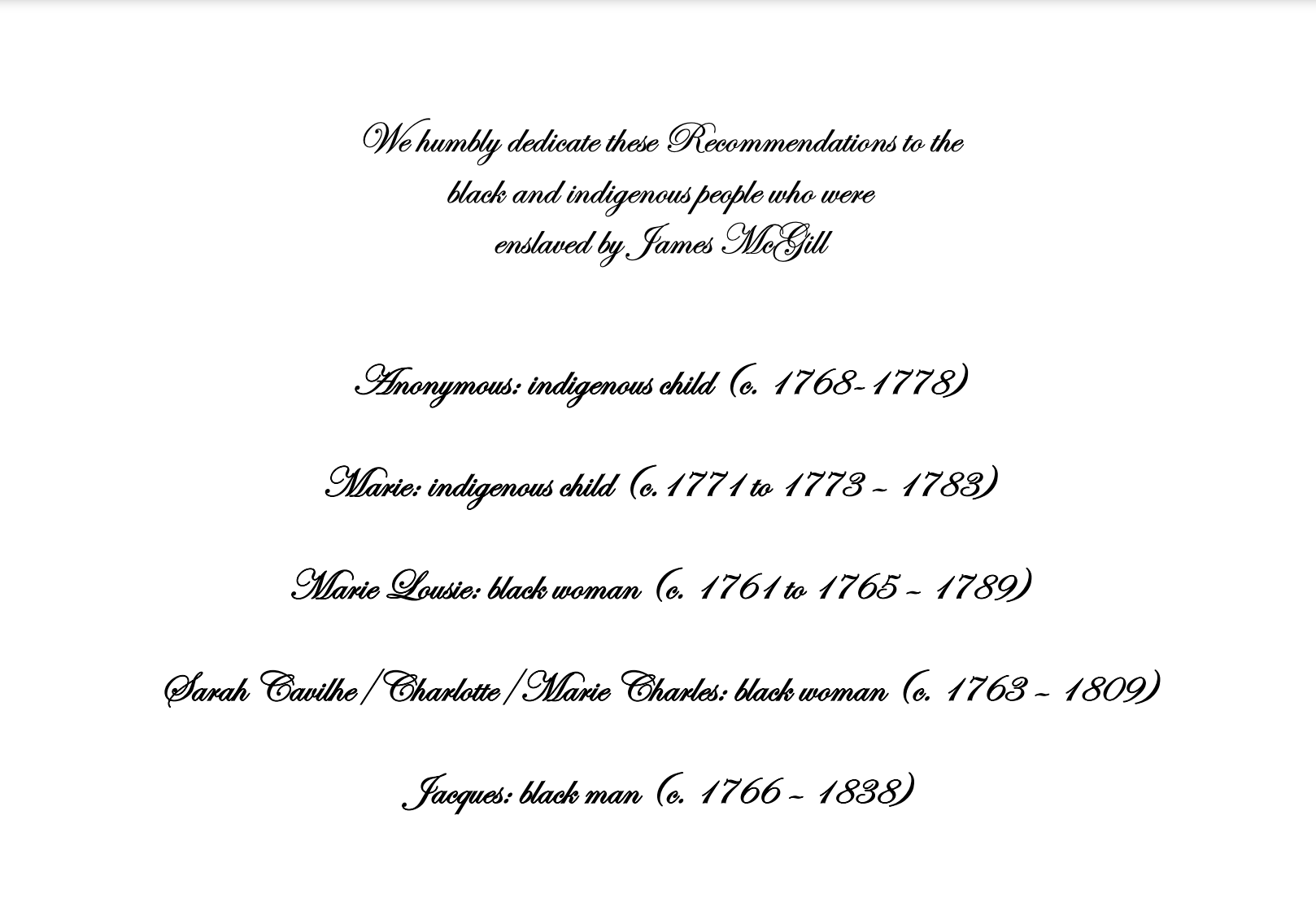Former McGill Art History Professor Charmaine Nelson, along with some of her students, released a 98-page research document on June 22, titled “Slavery and McGill University: Bicentennial Recommendations.” The document included an investigation of the connection between James McGill and transatlantic slavery, the biographies of people enslaved by McGill, and a call for the implementation of faculty and student recommendations at the university. The recommendations outlined in this document were composed during Nelson’s Winter 2020 course, James McGill was a Slave Owner: Slavery and the History of Universities.”
History of James McGill
The second section of the document, written by Nelson’s students Lucy Brown and Emma Ridsdale, features a condensed biography of James McGill, McGill’s beneficiary who enslaved at least five Black and Indigenous people, a number well above the average of two in Montreal at the time. The authors note how public records and contemporary scholarship have characterized James McGill as a wealthy Scottish trader who founded McGill University and ran a successful mercantile business, often disregarding darker elements of his past.
The same records denote that the wealth McGill used to found the university was amassed through the exploitation of enslaved Black and Indigenous people and the Transatlantic Slave Trade. McGill began his career in the fur trade, before expanding his wealth through the importation of plantation crops and goods from the Caribbean. These endeavours were the foundation of his enterprise, which was entirely dependent on the labour and dispensability of thousands of enslaved people, binding him directly to slavery in the West Indies.
“Personal accounts from McGill’s colleagues suggest that he was excessively greedy,” Brown and Risdale wrote. “This attitude is at odds with the philanthropic persona our university has traditionally crafted for him. Maintaining that inaccurate perception is disrespectful to the memories of the enslaved people that he owned and abused.”
According to the report, McGill did not only enslave people; he was also a proponent of the continuation of slavery within the British colonies. McGill proctored the sales of at least six enslaved people during his lifetime. In 1784, he provided legal representation for Thomas Curry of L’Assomption in the sale of an enslaved man and woman to the merchant Solomon Levy.
The personal accounts from McGill’s colleagues, in addition to the biographies of people enslaved by McGill, suggest that he may have been an inordinately harsh enslaver. Dr. Nelson’s document uncovered that two Indigenous girls McGill enslaved died at the age of 10, indicating especially brutal treatment.
Faculty Recommendations:
The authors of the report concluded that the demographic composition of McGill’s student body compared to support available to under-represented communities is insufficient. Additionally, of the approximately 5,000 faculty members, only 10 of the 1,726 tenured and tenure-track professors are Black, and only 11 are Indigenous. That accounts for 0.58 per cent and 0.64 per cent of tenured and tenure-track faculty respectively, a statistic that Dr. Nelson’s students deem an overt under-representation of Black and Indigenous faculty members.
To rectify this, Dr. Nelson and her students suggest several courses of action regarding the lack of Black and Indigenous faculty members within the university. One of the recommendations includes the creation of a Department of African and Black Diasporas Studies and an Indigenous studies department. The introduction and expansion of these faculties would necessitate the hiring of permanent faculty members and prioritize the hiring of Black and Indigenous professors. The document also recommends the creation of an advisor and advocacy position for Black and Indigenous faculty members, along with a new office to oversee all academic appointments to ensure the McGill administrations complete adherence to equity, inclusion, and diversity policies. Furthermore, Nelson and her students recommended the establishment of a new mandate for hiring at least one professor in Black and postcolonial studies and/or a Black professor within each department of the university by 2026.








